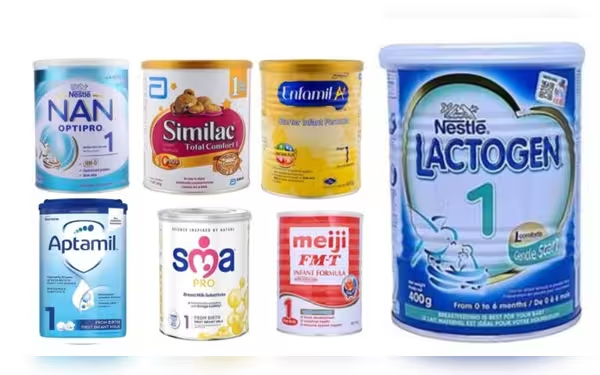Thursday, July 4, 2024 06:40 PM
Controversy over Proposed 18% GST on Infant Nutrition
- Proposed GST may worsen malnutrition among children
- Industry suggests phased approach to tax implementation
- Debate highlights balance between fiscal policies and public health priorities
 Image Credits: Profit by Pakistan Today
Image Credits: Profit by Pakistan TodayThe proposed 18% GST on locally produced infant formula milk and baby food in Pakistan has sparked controversy, raising concerns about its potential impact on child nutrition and public health. Industry representatives suggest a phased approach to implementation to balance fiscal policies with the nutritional needs of the population.
The government's recent proposal to introduce an 18% General Sales Tax (GST) on locally produced infant formula milk and baby food has stirred controversy among industry representatives and the public. This move, part of the budget proposal, aims to change the tax status of these essential products, potentially affecting the nutritional well-being of infants and children across the country.
Concerns have been raised regarding the potential consequences of imposing such a heavy tax on infant nutrition products. Critics fear that this taxation could worsen malnutrition issues among children, as parents might be compelled to choose cheaper and less nutritious alternatives due to increased prices. With Pakistan already facing a malnutrition crisis, characterized by high under-five mortality rates and a significant number of underweight and stunted children, the decision to implement this tax has sparked alarm.
While the Finance Minister has emphasized the importance of early childhood nutrition, defending the tax by stating its impact on the middle and upper middle classes who can afford it, the industry and public remain apprehensive about its repercussions. Local infant formula, baby food, and fortified child nutrition milk powders, priced around 50% lower than imported options, have been a crucial source of nutrition for a broader segment of the population.
In response to the proposed tax, the industry has suggested a phased approach to its implementation. They propose incremental increases over three years to mitigate the burden on businesses and consumers, aiming to balance the government's revenue needs with the nutritional requirements of the population.
The debate surrounding the imposition of an 18% GST on locally produced infant nutrition products in Pakistan underscores the delicate balance between fiscal policies and public health priorities. As stakeholders continue to deliberate on the best course of action, the ultimate goal remains ensuring access to affordable and nutritious infant food options for all segments of society, especially in a country grappling with significant malnutrition challenges.













